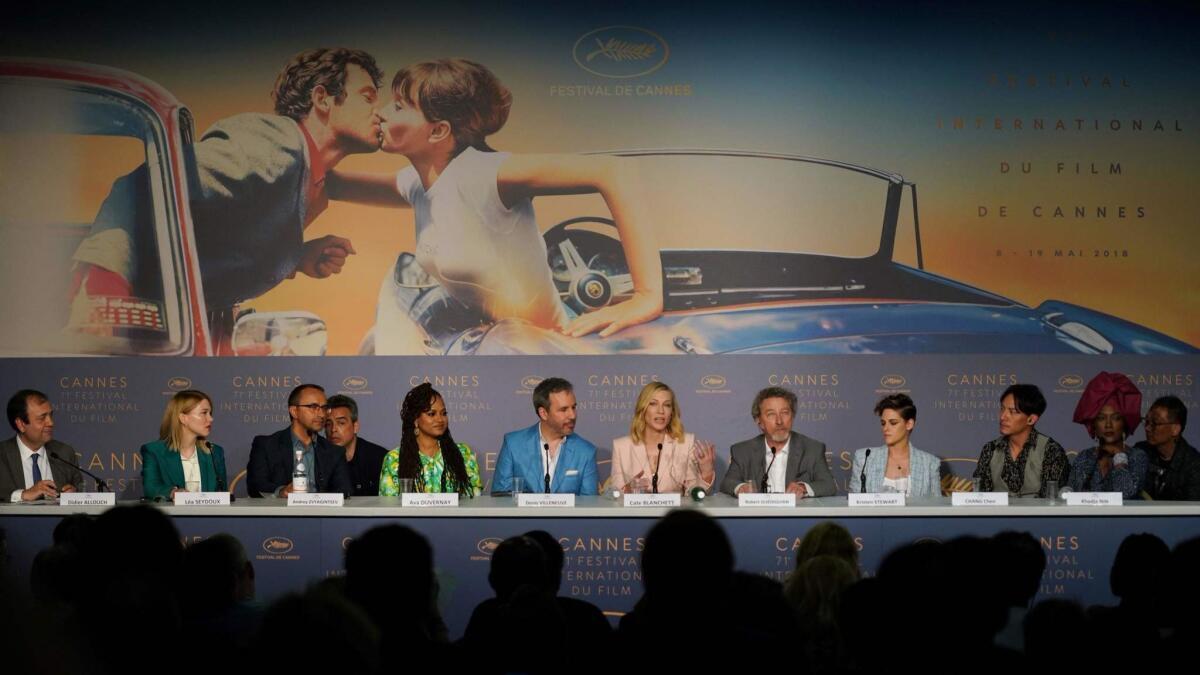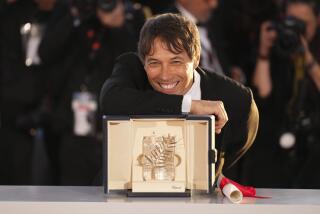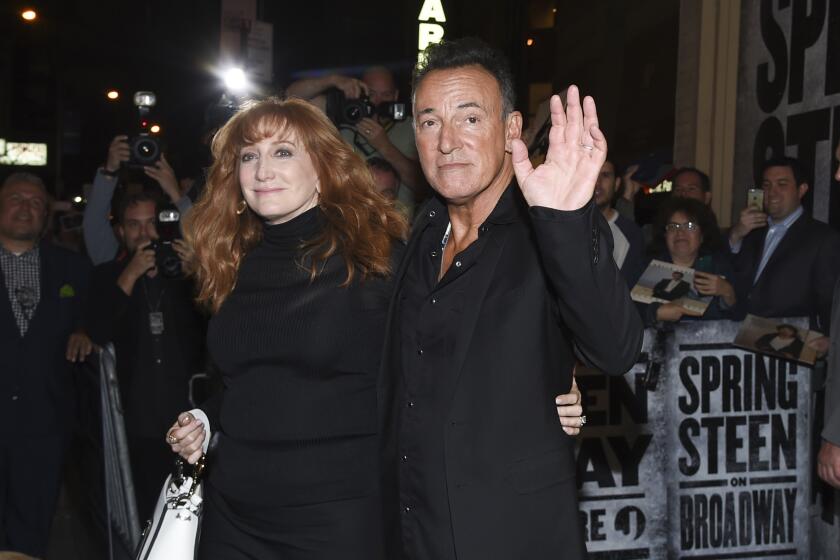Cannes jury speaks out on the first festival of the #MeToo era

Reporting from Cannes — For the first time, the Cannes Film Festival banned selfies on the red carpet. The organization is taking the new rule so seriously that when journalists retrieve their press passes this year, they are also given a bright red postcard reminding them of the rule, decrying “offenders will be denied entrance to the screenings.”
Off the red carpet, however? Apparently anything goes. At the opening news conference here on Tuesday, meant to introduce the star-studded jury to the media, reporters toting cellphones gathered en masse at the front of the room. When the eight jury members — including president Cate Blanchett, Kristen Stewart and Ava DuVernay — arrived at their seats, the journalists remained, snapping photos of celebrities just mere inches from their face.
Eventually, a moderator shooed the crowd away so the event could commence. But the instant the news conference concluded, many rushed to the stage again, seeking autographs. One woman even took Blanchett’s half-empty water bottle and took a sip from it. Très chic!
READ MORE: A kiss is not just a kiss at Cannes, where the mood is edgy this year Kenneth Turan »
As the head of the jury — which is rounded out by Chang Chen, Robert Guédiguian, Khadja Nin, Léa Seydoux, Denis Villeneuve and Andrey Zvyagintsev — Blanchett fielded the majority of the questions during the 30-minute affair. Though she went to lengths to remain equanimous — describing Cannes as a nonpolitical festival and giving inoffensive answers on the subject of #MeToo and women in the film industry — she was also, at moments, fierce.
When she was asked how female empowerment squares with a festival where actresses pose in high heels and gowns, she retorted: “Being attractive doesn’t preclude being intelligent.” And when a journalist asking why movies still matter addressed the question only to the filmmakers on the jury, she bristled with sarcasm. “Actresses, don’t answer that question. Because you have no idea how to answer that question.”
DuVernay made an oblique reference to the debate between the theatrical and streaming experience in her answer — Cannes didn’t allow Netflix to compete for the Palme d’Or this year — noting that she believes a film is a film “whether it is in a theater or not.”
“A film is a story told by a filmmaker, and the way in which that film is presented to the audience, I don’t think has any bearing on whether or not it is a film,” she said. DuVernay made the documentary “13th” for Netflix and continues to work with the streaming platform.
As for how the jury will select the festival’s top prize, Stewart said she would be looking for a movie that left her “fundamentally, undeniably moved.”
“Yes, the topical nature of films in festivals is important,” the actress said. “But I think it’s more important to know that in ten years time it will stand — and I think it’s pretty obvious when you watch a movie like that.”
Only three of the films competing for the Palme d’Or were made by women, a fact which Blanchett lamented. But change will not happen overnight, she noted, adding that she believes coming to Cannes as a director is an “exposing” sport and “you wanna know that the filmmakers are ready to have their films displayed.”
“Would I like to have more women displayed? Absolutely. But we are dealing with what we have this year. Our job as industry members away from this festival is to help with change,” she said. “Is [#metoo] going to have a direct impact upon the films in competition this year, six, nine months on [from the Harvey Weinstein controversy]? Not specifically. There are several women in the competition, but they aren’t there because of their gender. They are there because of the quality of their work.”
Follow me on Twitter @AmyKinLA
More to Read
Only good movies
Get the Indie Focus newsletter, Mark Olsen's weekly guide to the world of cinema.
You may occasionally receive promotional content from the Los Angeles Times.











